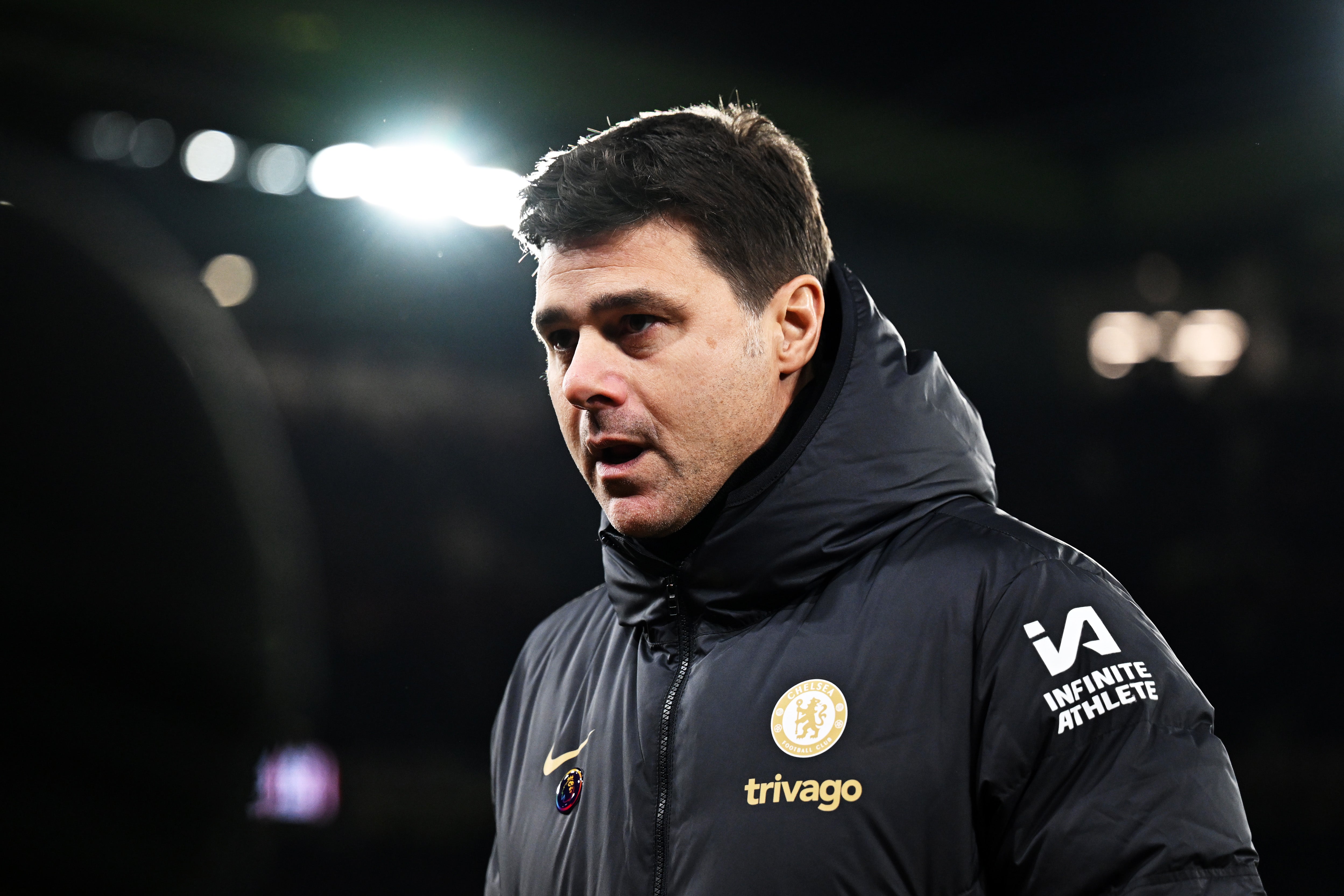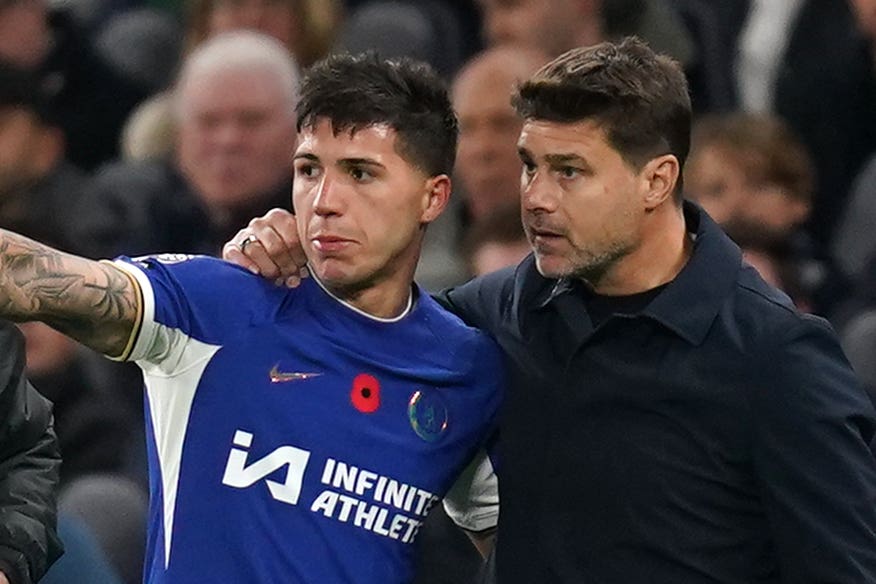Everton offer Mauricio Pochettino’s Chelsea a lesson in how to salvage an expensive mess
Both clubs have been guilty of overspending in the transfer market and underwhelming on the pitch in recent seasons. But they are going in different directions ahead of their meeting at Goodison Park on Sunday, writes Richard Jolly


Your support helps us to tell the story
From reproductive rights to climate change to Big Tech, The Independent is on the ground when the story is developing. Whether it's investigating the financials of Elon Musk's pro-Trump PAC or producing our latest documentary, 'The A Word', which shines a light on the American women fighting for reproductive rights, we know how important it is to parse out the facts from the messaging.
At such a critical moment in US history, we need reporters on the ground. Your donation allows us to keep sending journalists to speak to both sides of the story.
The Independent is trusted by Americans across the entire political spectrum. And unlike many other quality news outlets, we choose not to lock Americans out of our reporting and analysis with paywalls. We believe quality journalism should be available to everyone, paid for by those who can afford it.
Your support makes all the difference.Chelsea may be the one club who could look at Farhad Moshiri’s transfer record at Everton and conclude that he didn’t spend enough but bought well. All things are relative, after all, and Sunday’s meeting at Goodison Park is a clash of clubs who have suffered in very different ways from their overspending.
Everton have been deducted 10 points for failing Financial Fair Play by £19.5m; which, to put it another way, is under 2 per cent of Chelsea’s outlay under Todd Boehly. With those 10 points restored, Everton would be above Chelsea in the table. After two managers were bequeathed out-of-form sides by Frank Lampard, Sean Dyche has found more of a winning formula than Mauricio Pochettino.
And even with Everton in what they regard as an artificially unfair position, Chelsea enter the weekend closer in points to the bottom three than the top four. They also begin a run against lower-half clubs – Everton, Sheffield United, Wolves, Crystal Palace, Luton and Fulham – which many a previous Chelsea side would have seen as a chance to take 18 points.
But the current crop have a mere 19 from 15 games. Chelsea’s chances of playing Champions League football in the spring of 2025 already look remote before the end of 2023. They are already being distanced from both their usual rivals and the upwardly mobile. Manchester United’s defeat of Chelsea on Wednesday took Erik ten Hag’s often unconvincing side eight points clear of Pochettino’s charges; Aston Villa’s revelations are 13 ahead, and that might be 16 by the time Chelsea kick off on Sunday.
In 2021, Chelsea won the Champions League. Now the aim is simply to compete to reach it, and they may not be able to do that until next season. “We are going to challenge, yes,” Pochettino said. “Maybe not now but for sure in the future. I hope as soon as possible.”
If it was both a recognition of reality, given both the league table and Chelsea’s inconsistency, it was still extraordinary. After an outlay of some £1bn, they look mired in a second successive season of underachievement. Chelsea can amortise fees over never-ending contracts, persuade themselves they have won the future by signing young players, cash in on academy products and their status as “pure profit” in the accounts to pass Financial Fair Play. Yet, the transfer fees still have to be paid. Chelsea look likely to face another year without Champions League revenue; perhaps without any European income at all.
On the pitch, the sense remains that Chelsea have contrived to spend a record sum without acquiring a top-class goalkeeper, despite Robert Sanchez’s midweek penalty save to deny Bruno Fernandes, or striker; Christopher Nkunku, who was joint-top scorer in the Bundesliga last season but whose pre-season outings for Chelsea came in deeper positions, may have his belated debut further delayed until next week.

Meanwhile, their £222m double act in midfield were overpowered by Scott McTominay on Wednesday. First Enzo Fernandez and then Moises Caicedo were Premier League record buys. If the United game suggested they need Conor Gallagher’s energy alongside them, Chelsea careers suggest each was hugely overpriced.
But if expensive signings were supposed to provide a shortcut, the kind of injection of quality that could render each a difference-maker, Chelsea’s quest for chemistry and cohesion underlines the danger of ripping everything up and starting from scratch. Team-building can take a certain amount of strategising, something Chelsea seemed to lack last season, but also time, something their owners didn’t seem to factor in. “It’s not an excuse because we are in a club that needs to win,” Pochettino said. “It would be better if we were in a different position for sure. We knew when we accepted this offer that it was going to be tough.”
There are other definitions of the word. Certainly, Dyche has a different kind of difficult inheritance, taking over in austerity-era Everton, long after many of the misguided transfers Moshiri had intended would power Everton towards the Champions League backfired, with a club in relegation trouble first through their failings on the pitch and then because 10 points were stripped from their tally. If there are some similarities between Chelsea and Everton – both began the season struggling to win at home and neither manager has many players he truly trusts – it is an indictment in contrasting ways.
Dyche is too pragmatic to imagine what he would do with £1bn. “It is all conjecture,” said a manager who has a made transfer-market profit in his time at Goodison Park. “There is no point, I knew it wasn’t going to be there.” He expects Chelsea’s spending to produce some reward under Pochettino. “I don’t think you spend all that money with a manager who is knowledgeable and don’t get some kind of outcome.”
But while, as Pochettino accepted, Chelsea’s performances have dipped of late, Dyche’s austerity-era Everton are on the charge. If Everton were the role model of how not to buy, they may offer a lesson in how to cope when the funds dry up. Perhaps Chelsea will need it one day.
Join our commenting forum
Join thought-provoking conversations, follow other Independent readers and see their replies
Comments